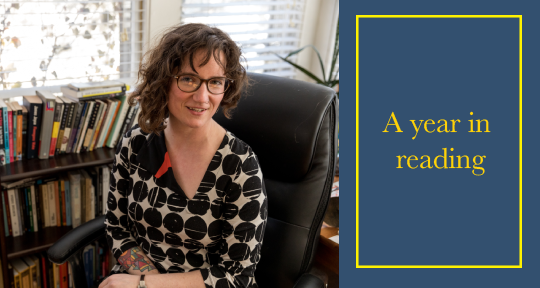This week we bring you news from Bulgaria and Hong Kong! In Bulgaria, Andriana Hamas recalls the brilliant life of poet and journalist Marin Bodakov, a significant contributor to Bulgarian letters, after his sudden death; Jacqueline Leung highlights the long-awaited return of the Hong Kong International Literary Festival and new book releases centered on personal and social struggles in Hong Kong. Read on to find out more!
Andriana Hamas, Editor-at-Large, reporting from Bulgaria
These past few weeks in Bulgaria have been marked by the sudden demise of the poet, literary critic, and journalist Marin Bodakov at age fifty. Born on April 28, 1971, in the picturesque city of Veliko Tarnovo, Bodakov studied Bulgarian Philology at Sofia University “St. Kliment Ohridski,” where he eventually earned his Ph.D. with a dissertation entitled “Policies of presentation of Bulgarian literature in the print media of the 1990s. Problems of Critical Autoreflection.” Moreover, he was an assistant professor at the Press Journalism Department, as well as a passionate advocate of the path towards a meaningful academic career. His talents were versatile, spanning such different spheres that it comes as no surprise that he also managed to maintain the weekly column, Ходене по буквите (Walking through the letters), published by the renowned Kultura newspaper. His original texts highlighting the best of both local and world literature would come out, without fail, even after the editorial team of Kultura dissolved and reunited shortly afterward as K Weekly. In recent years, Bodakov found a suitable writing platform in the independent outlet, Toest.
His first poetry collection, Девство (Virginhood), was followed by seven others, the latest published in 2018. Another prominent work he authored was Преведе от . . . (Translated from the original . . .), an enchanting volume that comprises of conversations with several Bulgarian translators. The interviews provide an invaluable glimpse into the profession and its “invisibility.” They equip the reader with a better understanding of the social and cultural trends that often play a decisive role by steering the literary scene in unforeseen directions. A year after the book was published, Bodakov received the Knight of the Book Award, granted to journalists and other prominent personalities who have contributed to the publication and promotion of books in Bulgaria.


